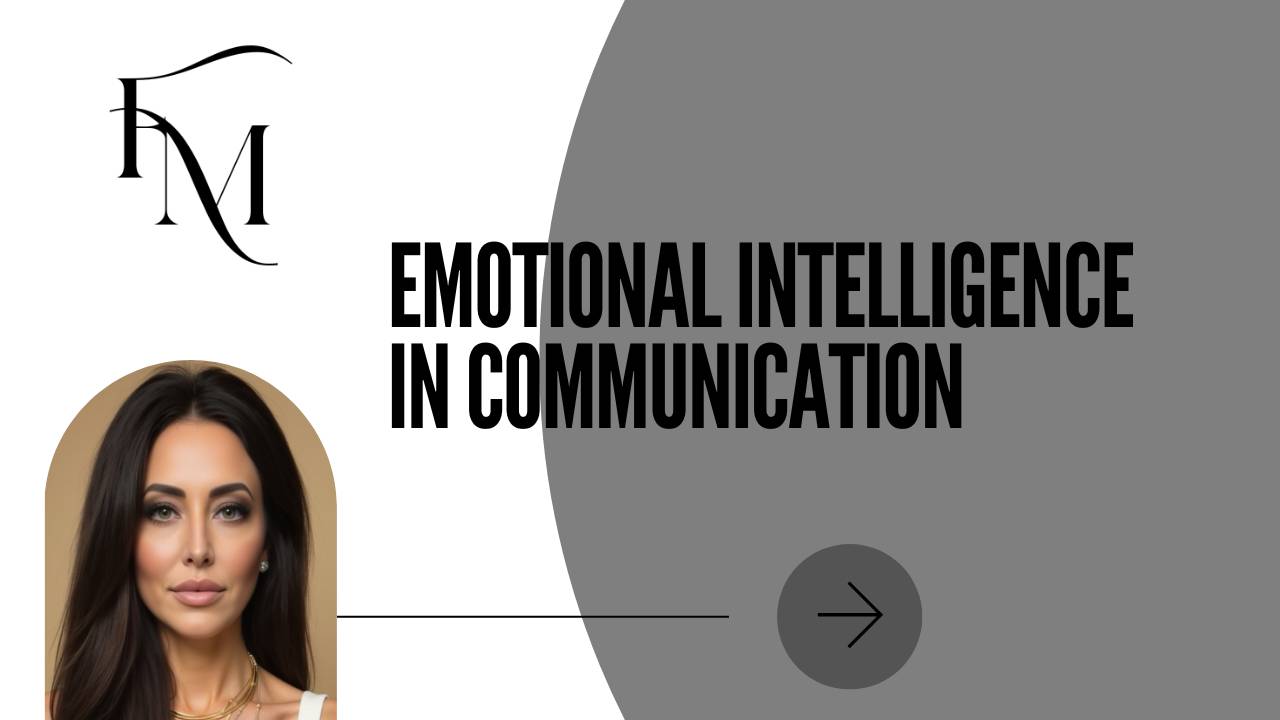
Emotional Intelligence in Communication: Reading the Room Without Losing Yourself
May 14, 2025Have you ever walked into a room and felt the tension before anyone said a word?
Or sensed that someone needed support — even though they claimed they were “fine”?
That’s not magic.
That’s emotional intelligence in action — and it’s one of the most underrated superpowers in communication.
But there’s a catch: being emotionally intelligent doesn’t mean becoming a mind-reader, a people-pleaser, or a doormat. It means learning how to read the room while still honoring your own voice and boundaries.
In this post, we’ll break down what emotional intelligence (EQ) really means in communication — and how to apply it without losing your clarity, your confidence, or your damn mind.
What Is Emotional Intelligence in Communication?
Emotional intelligence is the ability to:
-
Recognize and understand your own emotions
-
Recognize and understand others’ emotions
-
Use that awareness to guide your interactions in a productive way
It’s like having an internal GPS that helps you navigate tough conversations, sensitive topics, and unpredictable emotional dynamics — without spiraling or shutting down.
The 4 Core Skills of Emotionally Intelligent Communicators
1. Self-Awareness
You know how you’re feeling before it spills out sideways. You understand your triggers, patterns, and emotional reactions.
🧠 “I notice I’m getting defensive — I need a breath before I respond.”
2. Self-Regulation
You can manage your impulses. You don’t yell just because you’re mad. You don’t freeze just because you’re nervous. You choose your response.
🧠 “Even though I’m frustrated, I can express that calmly and clearly.”
3. Social Awareness
You can read the emotional temperature of the room. You notice body language, tone, energy shifts — and adjust your delivery accordingly.
🧠 “This feels like a tense moment. Let me slow down and check in before I continue.”
4. Relationship Management
You use your awareness to build trust, resolve conflict, and connect meaningfully. You communicate with empathy without abandoning boundaries.
🧠 “I see where they’re coming from, and I can still advocate for my position.”
What Happens Without Emotional Intelligence
When EQ is missing from communication, everything feels harder:
-
Misunderstandings escalate into conflict
-
Feedback turns into a fight
-
People feel dismissed, judged, or unseen
-
Conversations become draining or explosive
It’s like trying to dance with someone while stepping all over their feet — and your own.
How to “Read the Room” Without Losing Yourself
Let’s be clear: emotional intelligence doesn’t mean you’re responsible for everyone else’s feelings. It means you consider them — without silencing your own.
Here’s how to strike that balance:
✅ 1. Pause Before You Speak
Check in with yourself first: “What am I feeling right now? What’s my intention in saying this?”
A three-second pause can save a three-hour argument.
✅ 2. Name the Emotion (Yours and Theirs)
Bringing feelings into the light makes them easier to manage.
Try:
“I’m noticing some tension here — are you open to talking through it?”
“I’m feeling overwhelmed. Can we take a break and regroup?”
✅ 3. Mirror, Don’t Mimic
You don’t have to match someone’s emotional state. (Their panic doesn’t need to become your panic.)
Instead, stay grounded and mirror understanding:
“I can see this is frustrating. Let’s work through it together.”
✅ 4. Hold Space and Boundaries
You can listen with empathy and still disagree. You can validate someone’s emotions without taking responsibility for them.
“I hear that this was hard for you — and here’s where I’m coming from.”
This is emotional intelligence at its best: both/and, not either/or.
EQ in High-Stakes Conversations
Whether it’s a performance review, a breakup, a family feud, or a client negotiation — emotional intelligence is your secret weapon.
Here’s what it looks like in the wild:
-
You stay calm when someone else is reactive.
-
You recognize when it’s not the right time to push.
-
You sense when clarification is needed — or when silence is more powerful than words.
-
You give feedback in a way that’s honest and humane.
It’s not about controlling the outcome.
It’s about raising the quality of the conversation.
Final Thought: Emotional Intelligence Isn’t Soft — It’s Strategic
In today’s world, communication is noisy, reactive, and fast-paced.
Emotionally intelligent communicators don’t just survive that chaos — they lead through it.
Because when you can read the room, stay true to yourself, and respond with clarity and care?
You’re not just a better communicator.
You’re someone people trust.
And trust is the most powerful currency in human connection.
